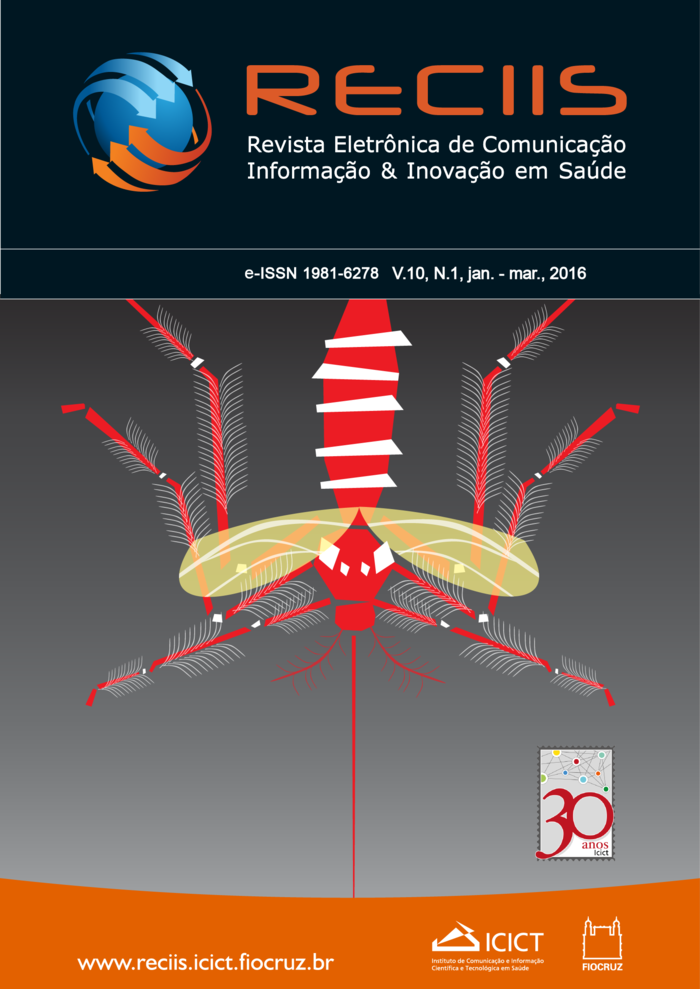The social imaginary about SUS and the vulnerability of men to access to diagnosis and treatment of sexually transmitted infections
DOI:
https://doi.org/10.29397/reciis.v10i1.1041Keywords:
Access, Sexually transmitted infections, Collective memory, Social imaginary, Unified Health System.Abstract
It is postulated the difficulty of men in the access to diagnosis and treatment of sexually transmitted infections (STI). Considering that access is also molded by sociocultural and symbolic dimensions, it is discussed if and how men’s apprehensions of SUS (the Unified Health System), can make them vulnerable when seeking for care, facing a suspicion of STI, holding as reference the notion of social imaginary. From the execution of four focal groups, it was analyzed the speeches of men about places where they would look for help, in case of suspicion of STI. The negative image that they have about the public health system is built from references that extrapolate their direct experience, in which the media seems to have a preponderant role. To the criticism of SUS private health insurance emerge with redeeming solution. Despite the importance of social participation, this notion was not present in those speeches, leading to the necessity of better comprehending and fomenting such initiative
Downloads
Published
How to Cite
Issue
Section
License
Author’s rights: The author retains unrestricted rights over his work.
Rights to reuse: Reciis adopts the Creative Commons License, CC BY-NC non-commercial attribution according to the Policy on Open Access to Knowledge by Oswaldo Cruz Foundation. With this license, access, download, copy, print, share, reuse, and distribution of articles is allowed, provided that it is for non-commercial use and with source citation, granting proper authorship credits and reference to Reciis. In such cases, no permission is required from the authors or editors.
Rights of authors’s deposit / self-archiving: The authors are encouraged to deposit the published version, along with the link of their article in Reciis, in institutional repositories.












